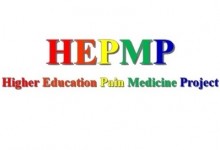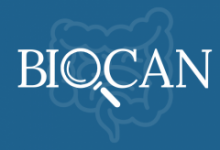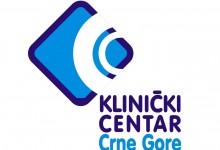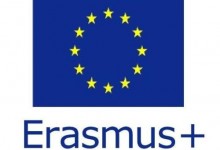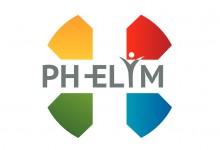Faculty of Medicine / STOMATOLOGY / BIOSTATISTICS
| Course: | BIOSTATISTICS/ |
| Course ID | Course status | Semester | ECTS credits | Lessons (Lessons+Exercises+Laboratory) |
| 7927 | Obavezan | 1 | 10 | 2+2+0 |
| Programs | STOMATOLOGY |
| Prerequisites | |
| Aims | |
| Learning outcomes | |
| Lecturer / Teaching assistant | |
| Methodology |
| Plan and program of work | |
| Preparing week | Preparation and registration of the semester |
| I week lectures | |
| I week exercises | |
| II week lectures | |
| II week exercises | |
| III week lectures | |
| III week exercises | |
| IV week lectures | |
| IV week exercises | |
| V week lectures | |
| V week exercises | |
| VI week lectures | |
| VI week exercises | |
| VII week lectures | |
| VII week exercises | |
| VIII week lectures | |
| VIII week exercises | |
| IX week lectures | |
| IX week exercises | |
| X week lectures | |
| X week exercises | |
| XI week lectures | |
| XI week exercises | |
| XII week lectures | |
| XII week exercises | |
| XIII week lectures | |
| XIII week exercises | |
| XIV week lectures | |
| XIV week exercises | |
| XV week lectures | |
| XV week exercises |
| Student workload | |
| Per week | Per semester |
| 10 credits x 40/30=13 hours and 20 minuts
2 sat(a) theoretical classes 0 sat(a) practical classes 2 excercises 9 hour(s) i 20 minuts of independent work, including consultations |
Classes and final exam:
13 hour(s) i 20 minuts x 16 =213 hour(s) i 20 minuts Necessary preparation before the beginning of the semester (administration, registration, certification): 13 hour(s) i 20 minuts x 2 =26 hour(s) i 40 minuts Total workload for the subject: 10 x 30=300 hour(s) Additional work for exam preparation in the preparing exam period, including taking the remedial exam from 0 to 30 hours (remaining time from the first two items to the total load for the item) 60 hour(s) i 0 minuts Workload structure: 213 hour(s) i 20 minuts (cources), 26 hour(s) i 40 minuts (preparation), 60 hour(s) i 0 minuts (additional work) |
| Student obligations | |
| Consultations | |
| Literature | |
| Examination methods | |
| Special remarks | |
| Comment |
| Grade: | F | E | D | C | B | A |
| Number of points | less than 50 points | greater than or equal to 50 points and less than 60 points | greater than or equal to 60 points and less than 70 points | greater than or equal to 70 points and less than 80 points | greater than or equal to 80 points and less than 90 points | greater than or equal to 90 points |
Faculty of Medicine / STOMATOLOGY / MEDICAL INFORMATICS
| Course: | MEDICAL INFORMATICS/ |
| Course ID | Course status | Semester | ECTS credits | Lessons (Lessons+Exercises+Laboratory) |
| 7928 | Obavezan | 1 | 10 | 3+1+0 |
| Programs | STOMATOLOGY |
| Prerequisites | |
| Aims | |
| Learning outcomes | |
| Lecturer / Teaching assistant | |
| Methodology |
| Plan and program of work | |
| Preparing week | Preparation and registration of the semester |
| I week lectures | |
| I week exercises | |
| II week lectures | |
| II week exercises | |
| III week lectures | |
| III week exercises | |
| IV week lectures | |
| IV week exercises | |
| V week lectures | |
| V week exercises | |
| VI week lectures | |
| VI week exercises | |
| VII week lectures | |
| VII week exercises | |
| VIII week lectures | |
| VIII week exercises | |
| IX week lectures | |
| IX week exercises | |
| X week lectures | |
| X week exercises | |
| XI week lectures | |
| XI week exercises | |
| XII week lectures | |
| XII week exercises | |
| XIII week lectures | |
| XIII week exercises | |
| XIV week lectures | |
| XIV week exercises | |
| XV week lectures | |
| XV week exercises |
| Student workload | |
| Per week | Per semester |
| 10 credits x 40/30=13 hours and 20 minuts
3 sat(a) theoretical classes 0 sat(a) practical classes 1 excercises 9 hour(s) i 20 minuts of independent work, including consultations |
Classes and final exam:
13 hour(s) i 20 minuts x 16 =213 hour(s) i 20 minuts Necessary preparation before the beginning of the semester (administration, registration, certification): 13 hour(s) i 20 minuts x 2 =26 hour(s) i 40 minuts Total workload for the subject: 10 x 30=300 hour(s) Additional work for exam preparation in the preparing exam period, including taking the remedial exam from 0 to 30 hours (remaining time from the first two items to the total load for the item) 60 hour(s) i 0 minuts Workload structure: 213 hour(s) i 20 minuts (cources), 26 hour(s) i 40 minuts (preparation), 60 hour(s) i 0 minuts (additional work) |
| Student obligations | |
| Consultations | |
| Literature | |
| Examination methods | |
| Special remarks | |
| Comment |
| Grade: | F | E | D | C | B | A |
| Number of points | less than 50 points | greater than or equal to 50 points and less than 60 points | greater than or equal to 60 points and less than 70 points | greater than or equal to 70 points and less than 80 points | greater than or equal to 80 points and less than 90 points | greater than or equal to 90 points |
Faculty of Medicine / STOMATOLOGY / SCIENTIFIC RESEARCH METHODOLOGY
| Course: | SCIENTIFIC RESEARCH METHODOLOGY/ |
| Course ID | Course status | Semester | ECTS credits | Lessons (Lessons+Exercises+Laboratory) |
| 7929 | Obavezan | 1 | 10 | 2+2+0 |
| Programs | STOMATOLOGY |
| Prerequisites | There is no conditioning |
| Aims | Acquiring knowledge and skills in the field of scientific research methodology |
| Learning outcomes | After completing the one-semester course and passing the exam in the subject of scientific research methodology, the student of doctoral studies should have the following learning outcomes: 1. Knows the general methodological principles of scientific research 2. Knows the types of scientific research and their basic characteristics. 3. Knows the ethical norms in biomedical research 4. Knows the basic elements of the application of evidence-based medicine 5. Knows the concepts of connection and causality, as well as the criteria for causality 6. Knows how to calculate indicators of morbidity and mortality 8. Knows how to describe the types of epidemiological studies and their advantages and disadvantages 9. Knows how to distinguish types of samples and their application 10. Knows different types of measurement errors - biases 11. Knows the principles of planning and reporting a scientific research project. |
| Lecturer / Teaching assistant | prof. dr Dragan Laušević, prof. dr Boban Mugoša |
| Methodology | Lectures, exercises, consultations, seminar papers, presentation in front of the group |
| Plan and program of work | |
| Preparing week | Preparation and registration of the semester |
| I week lectures | General methodology of scientific research in medicine |
| I week exercises | They follow lectures through examples from domestic and foreign practice |
| II week lectures | Classification of scientific research - types of research |
| II week exercises | They follow lectures through examples from domestic and foreign practice |
| III week lectures | Evidence-based medicine |
| III week exercises | They follow lectures through examples from domestic and foreign practice |
| IV week lectures | Important ethical norms in biological and medical research |
| IV week exercises | They follow lectures through examples from domestic and foreign practice |
| V week lectures | Concept of connection and causation |
| V week exercises | They follow lectures through examples from domestic and foreign practice |
| VI week lectures | Measures of frequency of health disorders |
| VI week exercises | They follow lectures through examples from domestic and foreign practice |
| VII week lectures | Standardization of morbidity and mortality indicators (direct and indirect) |
| VII week exercises | They follow lectures through examples from domestic and foreign practice |
| VIII week lectures | Sample (types and size of sample) |
| VIII week exercises | They follow lectures through examples from domestic and foreign practice |
| IX week lectures | Descriptive studie |
| IX week exercises | They follow lectures through examples from domestic and foreign practice |
| X week lectures | Basic characteristics of different types of observational analytical studies (cohort, case and control studies, cross-sectional studies |
| X week exercises | They follow lectures through examples from domestic and foreign practice |
| XI week lectures | Intervention (experimental) studies |
| XI week exercises | They follow lectures through examples from domestic and foreign practice |
| XII week lectures | Experiments on animals in laboratory conditions |
| XII week exercises | They follow lectures through examples from domestic and foreign practice |
| XIII week lectures | Variability and measurement errors (bias) |
| XIII week exercises | They follow lectures through examples from domestic and foreign practice |
| XIV week lectures | Screening |
| XIV week exercises | They follow lectures through examples from domestic and foreign practice |
| XV week lectures | Preparation and reporting of a scientific research project |
| XV week exercises | They follow lectures through examples from domestic and foreign practice |
| Student workload | In the semester Classes and final exam: (13.33 hours) x 16 = 213.28 hours Necessary preparations before the beginning of the semester (administration, registration, certification): (13.33 hours) x 2 = 26.66 hours Total workload for the course: 10 x 30 = 300 hours Load structure: 234.56 hours (teaching and final exam) + 29.32 hours (preparation) + 42 hours (additional work) |
| Per week | Per semester |
| 10 credits x 40/30=13 hours and 20 minuts
2 sat(a) theoretical classes 0 sat(a) practical classes 2 excercises 9 hour(s) i 20 minuts of independent work, including consultations |
Classes and final exam:
13 hour(s) i 20 minuts x 16 =213 hour(s) i 20 minuts Necessary preparation before the beginning of the semester (administration, registration, certification): 13 hour(s) i 20 minuts x 2 =26 hour(s) i 40 minuts Total workload for the subject: 10 x 30=300 hour(s) Additional work for exam preparation in the preparing exam period, including taking the remedial exam from 0 to 30 hours (remaining time from the first two items to the total load for the item) 60 hour(s) i 0 minuts Workload structure: 213 hour(s) i 20 minuts (cources), 26 hour(s) i 40 minuts (preparation), 60 hour(s) i 0 minuts (additional work) |
| Student obligations | Regular attendance of classes and exercises, preparation of a seminar paper |
| Consultations | |
| Literature | 1. Metodologija naučnog saznanja I – Kako stvoriti naučno delo u biomedicini. Jovan Đ. Savić, drugo izdanje, 2013, DATASTATUS, Beograd 2. Oxford Handbook of Clinical and Healthcare Research. Editors: Sumantra Ray, Sue Fitzpatrick, Rajna Golubic, Suzan Fisher, Oxford University press, 2016 3. Internet sources |
| Examination methods | Up to 30 points - regular attendance (15) and activity in classes (15); up to 20 points - seminar paper; up to 50 points - an exam in the form of a test. A passing grade is obtained if a minimum of 50 points is accumulated |
| Special remarks | |
| Comment |
| Grade: | F | E | D | C | B | A |
| Number of points | less than 50 points | greater than or equal to 50 points and less than 60 points | greater than or equal to 60 points and less than 70 points | greater than or equal to 70 points and less than 80 points | greater than or equal to 80 points and less than 90 points | greater than or equal to 90 points |
Faculty of Medicine / STOMATOLOGY / PRINCIPI EPIDEMIOLOŠKE NAUKE U STOMATOLOŠKOM
| Course: | PRINCIPI EPIDEMIOLOŠKE NAUKE U STOMATOLOŠKOM/ |
| Course ID | Course status | Semester | ECTS credits | Lessons (Lessons+Exercises+Laboratory) |
| 11545 | Obavezan | 2 | 10 | 4++0 |
| Programs | STOMATOLOGY |
| Prerequisites | Passed the Methodology of scientific research exam |
| Aims | Acquiring knowledge and skills, transferring knowledge from the field of epidemiological research in dental public health |
| Learning outcomes | After the student passes this exam, he will be able to: 1. Knows and applies the principles of evidence-based dentistry (oral health). 2. Knows and applies ethical norms in the field of research in dentistry (oral health). 3. Knows how to calculate indicators of oral health disorders 4. Knows how to apply different types of descriptive studies in the field of oral health. 5. Knows and applies the principles of applying observational analytical studies in the field of oral health. 6. Knows and applies the principles of application of interventional studies in the field of oral health. 7. Understands the process of assessing the validity and reliability of screening procedures in the field of oral health. 8. Knows and applies the principles of preparing a proposal for a scientific research project in the field of oral health. 9. Knows and applies the principles of writing an original scientific paper. 10. Knows and applies the principles and techniques of oral presentation of scientific work. |
| Lecturer / Teaching assistant | prof. dr Dragan Laušević prof. dr Boban Mugoša |
| Methodology | Lectures, consultations, seminar papers, presentation in front of the group, method of students practical activities |
| Plan and program of work | |
| Preparing week | Preparation and registration of the semester |
| I week lectures | Application of evidence-based principles of dentistry (oral health). |
| I week exercises | |
| II week lectures | Measures of frequency of oral health disorders |
| II week exercises | |
| III week lectures | Measures of association (effect) in oral health research |
| III week exercises | |
| IV week lectures | Application of descriptive studies in oral health (time series studies) |
| IV week exercises | |
| V week lectures | Application of descriptive studies in oral health (ecological studies) |
| V week exercises | |
| VI week lectures | Application of descriptive studies in oral health (case studies and case series) |
| VI week exercises | |
| VII week lectures | Application of descriptive studies in oral health (case studies and case series) |
| VII week exercises | |
| VIII week lectures | Application of case-control studies in oral health research |
| VIII week exercises | |
| IX week lectures | Application of cohort studies in oral health research |
| IX week exercises | |
| X week lectures | Application of interventional studies in oral health research |
| X week exercises | |
| XI week lectures | Evaluation of the validity and reliability of screening procedures in oral health |
| XI week exercises | |
| XII week lectures | Preparation of a proposal for a scientific research project in the field of oral health |
| XII week exercises | |
| XIII week lectures | How to write an original scientific paper |
| XIII week exercises | |
| XIV week lectures | How to review a scientific research paper |
| XIV week exercises | |
| XV week lectures | Method of oral presentation of scientific work |
| XV week exercises |
| Student workload | In the semester Classes and final exam: (13.33 hours) x 16 = 213.28 hours Necessary preparations before the beginning of the semester (administration, registration, certification): (13.33 hours) x 2 = 26.66 hours Total workload for the course: 10 x 30 = 300 hours Load structure: 234.56 hours (teaching and final exam) + 29.32 hours (preparation) + 42 hours (supplementary work) |
| Per week | Per semester |
| 10 credits x 40/30=13 hours and 20 minuts
4 sat(a) theoretical classes 0 sat(a) practical classes 0 excercises 9 hour(s) i 20 minuts of independent work, including consultations |
Classes and final exam:
13 hour(s) i 20 minuts x 16 =213 hour(s) i 20 minuts Necessary preparation before the beginning of the semester (administration, registration, certification): 13 hour(s) i 20 minuts x 2 =26 hour(s) i 40 minuts Total workload for the subject: 10 x 30=300 hour(s) Additional work for exam preparation in the preparing exam period, including taking the remedial exam from 0 to 30 hours (remaining time from the first two items to the total load for the item) 60 hour(s) i 0 minuts Workload structure: 213 hour(s) i 20 minuts (cources), 26 hour(s) i 40 minuts (preparation), 60 hour(s) i 0 minuts (additional work) |
| Student obligations | regular attendance of classes, preparation of a seminar paper |
| Consultations | |
| Literature | 1. Pers. MA, Ferreira Antunes JL, Watt RG. Oral epidemiology: A textbook on oral health Conditions Research Topics and Methods. Springer, 2020 2. Savić JĐ, Matutinović SF. Metodologija naučnog saznanja II, Datastatus, Beograd. 2014 |
| Examination methods | Regular attendance and activities in classes - up to 20 points; seminar work - up to 30 points; final exam (in the form of a test) up to 50 points. A passing grade is obtained if a minimum of 50 points is accumulated |
| Special remarks | |
| Comment |
| Grade: | F | E | D | C | B | A |
| Number of points | less than 50 points | greater than or equal to 50 points and less than 60 points | greater than or equal to 60 points and less than 70 points | greater than or equal to 70 points and less than 80 points | greater than or equal to 80 points and less than 90 points | greater than or equal to 90 points |


